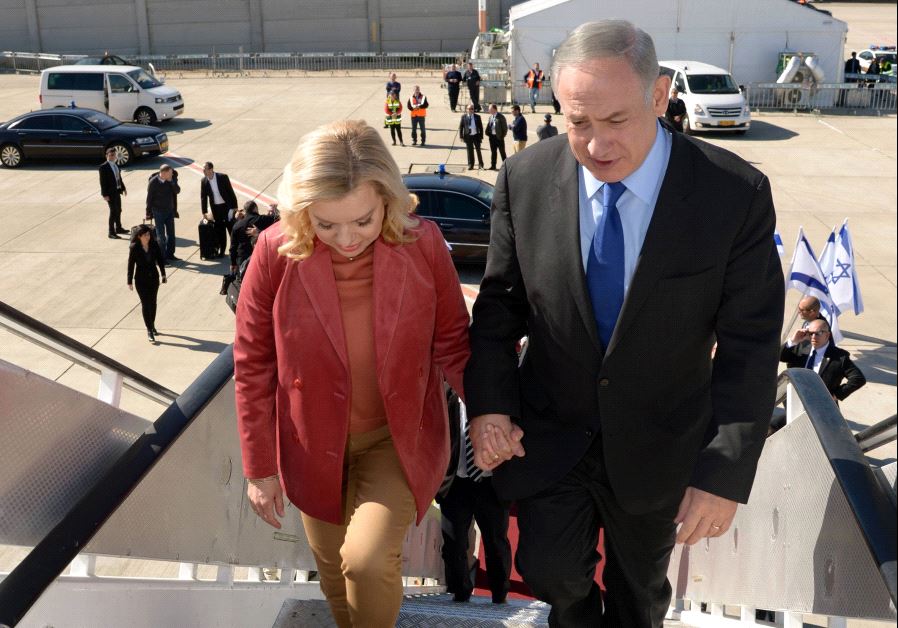Netanyahu leaves for Singapore, Australia, seeking to ‘open new markets’
PM sets off for first ever visit by a sitting Israeli premier to the two countries.
 Prime Minister Benjamin Netanyahu and his wife Sara on their way to Singapore(photo credit: CHAIM ZACH / GPO)Updated:
Prime Minister Benjamin Netanyahu and his wife Sara on their way to Singapore(photo credit: CHAIM ZACH / GPO)Updated: